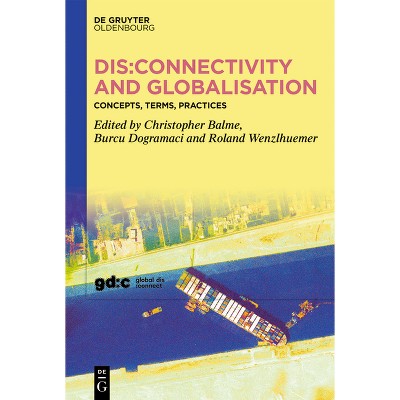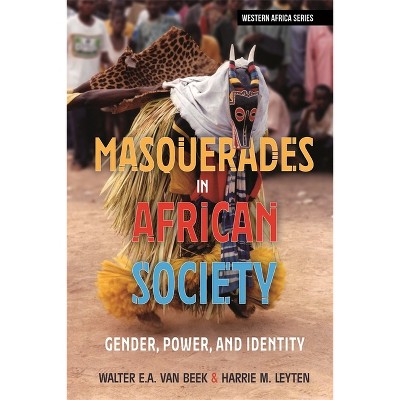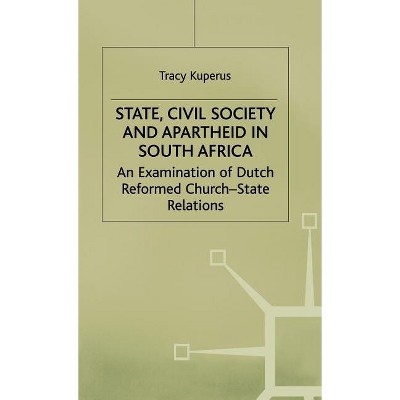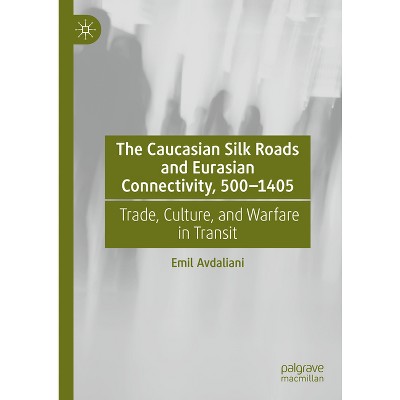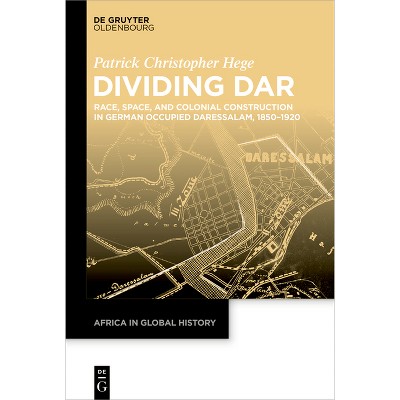Nomadic Connectivity - (Connectivity and Society in Africa) by Inge Butter (Paperback)

About this item
Highlights
- A focus on the everyday has produced this ethnography, which hopes to give a nuanced voice to an extended family of semi-sedentary nomads, living at the centre of a country and region known for its political turmoil, ecological insecurities, and socio-economic hardship.
- About the Author: Inge Butter, African Studies Centre, Leiden University, The Netherlands.
- 253 Pages
- History, Africa
- Series Name: Connectivity and Society in Africa
Description
About the Book
Based in central Chad, the nomadic Walad Djifir are part of extensive socio-economic networks, ranging from very local cattle markets, to Western Unions in Libya, and selling merchandise in the Central African Republic. This ethnography embraces theBook Synopsis
A focus on the everyday has produced this ethnography, which hopes to give a nuanced voice to an extended family of semi-sedentary nomads, living at the centre of a country and region known for its political turmoil, ecological insecurities, and socio-economic hardship. The everyday of the Chadian Walad Djifir is one in which sedentarity and mobility are approached as two entwined parts of a whole, and where economic and geographical boundaries do not necessarily form constrictions. The ferīkh (nomadic camp) is where all of the Walad Djifir's networks meet, and often also begin-- a physical place embodying various networks and connections, which span time and geographical space. This analytical and methodological approach gives insight in how regional trends can be understood in light of the Walad Djifir's daily lives. Over time, the Walad Djifir have developed ways of coping and dealing with insecurities, interacting with infrastructural, technological, and socio-political developments in specific ways. In exploring how such insecurities and crises become anchored into the everyday, the ferīkh provides answers. It is precisely the mundane elements of daily life which anchor disruption.From the Back Cover
Based in central Chad, the Walad Djifir are part of extensive socio-economic networks, ranging from local and regional cattle markets, to Western Unions in Libya, and selling merchandise in the Central African Republic. The ferīkh (nomadic camp) is where all of the Walad Djifir's networks meet, and often also begin--providing the departure point of this research. This analytical and methodological approach embraces the intricate relationships between sedentary and mobility, the mundane and the extreme, flexibility and expectations. The Walad Djifir have developed ways of coping and dealing with insecurities, historically interacting with infrastructural, technological, and socio-political developments in specific ways. In exploring how such insecurities and crises become anchored into the everyday, the ferīkh provides answers. It is the mundane elements of daily life which give meaning to, and in so doing, anchor (potential) disruption.
About the Author
Inge Butter, African Studies Centre, Leiden University, The Netherlands.





